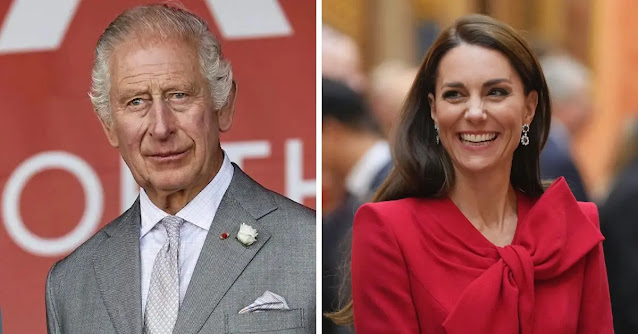Catherine Middleton, the Princess of Wales, has proven time and again that her grace, wisdom, and steadfast loyalty to the royal family are invaluable assets. Over the years, her role within the monarchy has grown, and she has become a vital figure in preserving the stability and unity of the British royal family. One of the most pivotal moments in her journey as a royal was when she played a key role in ending a significant crisis between King Charles and Prince William, helping to restore peace within the monarchy.
The royal family, like any other, has experienced its fair share of internal conflicts. After the passing of Queen Elizabeth II, tensions between King Charles and Prince William escalated due to differing views on the future of the monarchy. King Charles, known for his progressive and modern approach, sought to streamline the royal institution, while William, more traditional in his views, was concerned about preserving certain long-standing practices and values.
This difference in vision created a growing divide between father and son. Additionally, Charles’ relationship with Queen Camilla and the changing dynamics within the family added layers of complexity to the situation. The media was quick to highlight the tension, fueling public concern about a possible schism in the monarchy.
Amid this growing crisis, Catherine Middleton stepped in as a unifying force. Known for her calm and diplomatic nature, Catherine had already developed a close bond with King Charles over the years. Her ability to navigate royal traditions while embracing modernity made her a valuable mediator in this delicate situation.
Understanding the importance of maintaining unity, Catherine took it upon herself to bridge the gap between William and his father. She worked behind the scenes, encouraging open communication between the two and helping them find common ground on key issues. Catherine’s role was not only as William’s supportive spouse but also as a trusted confidante to King Charles. She urged both men to put their differences aside for the greater good of the monarchy and the family’s public image.
Catherine’s efforts bore fruit when she helped organize a series of private meetings between King Charles and Prince William. These gatherings, devoid of media scrutiny, allowed them to discuss their concerns and work through their differences. Catherine was instrumental in facilitating these conversations, often acting as a calming presence during tense discussions.
Her role in these negotiations helped King Charles and Prince William reach a compromise. The family crisis began to dissipate as both men agreed to collaborate on shaping the future of the monarchy, balancing Charles’ vision of modernization with William’s respect for tradition.
Catherine’s involvement in resolving the royal crisis earned her widespread admiration from the public and within the royal family. Her quiet diplomacy and dedication to maintaining family harmony strengthened her position as a key figure in the monarchy’s future. Many viewed her actions as a testament to her deep understanding of the complexities of royal life and her unwavering commitment to supporting both her husband and the royal institution.
Catherine Middleton’s role in ending the crisis between King Charles and Prince William was a defining moment in her royal career, solidifying her reputation as a peacemaker and a cornerstone of the modern British monarchy.




